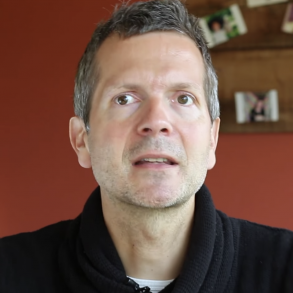By Gracy Obuchowicz for Enlivening Edge Magazine
Seven years ago, when I began facilitating self-care support groups, I didn’t know the terminology of “Teal” or “Orange” or really anything about human development. After years of teaching yoga in Washington, DC, I desired a deeper way to help people. I decided to create a group coaching program called “Self Care 101” which focused on teaching my clients, mainly overworked professional women, something I now call “authentic self-care.”
As part of authentic self-care, I coached my clients about a new way to change their habits called kaizen (which I’ll explain in more detail later) and engaged them to begin questioning their perfectionism, something that seemed to block their ability to trust and manage themselves.
With these new tools, I watched as my clients dug deeply into themselves. During our check-ins, they shared the messy parts of their inner lives which didn’t always have a place in their image-conscious professional world. Although this vulnerability felt edgy at first, they found solace knowing that others struggled too.
As these outerly successful women let down their perfectionist armour and found support, they realized how much more they wanted from their lives. After just ten weeks of practicing authentic self-care, they were ready to change jobs, take on challenging new positions, or move to their dream city. They were learning to trust themselves to take meaningful risks and tolerate the discomfort of learning from their mistakes. From their example, I started to see that taking care of ourselves not only affects our agency for personal well-being but also can help us grow in our ability to self-manage in any context.
From their example, I started to see that taking care of ourselves not only affects our agency for personal well-being but also can help us grow in our ability to self-manage in any context.
In seeking more understanding of the profundity of these changes and in my desire to grow in this work, I enrolled in the Integral Facilitation program through Ten Directions. Through this transformative nine-month program, I learned about the work of Ken Wilber and how to apply an Integral framework to the transformations I was witnessing in my self-care groups.
I began to understand that the authentic self-care we were practicing could be replicated to help others make a supported developmental leap into greater self-management, which I’ve since come to understand can be moving into a Teal perspective of seeing ourselves and the world.
With these realizations, I started helping organizations, mostly schools in the DC area, create what I called a “culture of care.” While the self-management development process is slower to reveal itself within a larger institution, and more prone to bureaucratic interruptions, I’ve witnessed impressive growth spurts within a relatively short amount of time.
An Executive Director told me how much personal growth he was able to see in his staff as a result of a few self-care shifts. Another teacher confided that working on her self-care was the best professional development she’d ever encountered. By developing a culture of care, I believe organizations can gain the necessary aptitudes to transition into a Teal practice of collective self-management.
How can more of us make this leap? We first have to look at what impedes our ability to change: our perfectionism, or the idea that we must minimize any perceived weakness if we want to be successful, is often what keeps us blocked.
For some of us, perfectionism shows up as overachievement and a desire to control as many variables as possible. In modern culture, these qualities are prized especially for how they help us advance in our careers. For others, perfectionism presents itself as procrastination. Procrastinators wait for the perfect time to do something—and because nothing is ever perfect, they never move forward. Often procrastination comes along with a self-narrative of being “lazy” and “irresponsible.”
Unquestioned perfectionism can profoundly affect our attitudes toward self-management.
Unquestioned perfectionism can profoundly affect our attitudes toward self-management. If we tend toward overachievement, we might cling to hierarchical structures and the sense of control they can give us. If we’re prone to procrastination, self-management might feel like a downward spiral toward decreasing productivity. We often don’t trust ourselves to be effective without someone in authority demanding certain standards of our work.
The most powerful antidote to perfectionism I’ve found is kaizen methodology. Kaizen is a Japanese word that translates to: good change, small change, continuous change. Rather than trying to change ourselves in dramatic ways, which our variable-adverse nervous system will naturally resist, kaizen asks us to create the smallest shift possible. Once we integrate a tiny change, we search for the next small shift to help us develop. Kaizen helps us understand that we’re always changing and with intentional practice, we can help shape what we’re becoming.
“Kaizen helps us understand that we’re always changing and with intentional practice, we can help shape what we’re becoming.”
Waking up ten minutes earlier, deleting one app from our phones, or committing to a weekly flower delivery for the breakroom are all powerful kaizen steps. Especially when we can frame these kaizen moves as acts of care, they feel possible and attractive. Subtly, we slip past the defensive mechanisms of our nervous system and begin exploring our emergent sense of self-agency.
The leadership of vulnerability
I believe questioning perfectionism and learning to effectively self-manage through the practice of kaizen can also create a greater sense of wholeness within an individual. As I’ve learned through the work of shame and vulnerability researcher Brené Brown, our perfectionism is a defensive pattern that many of us engage as young children as a result of personal and collective trauma. Perfectionism becomes our way of staying safe and protecting ourselves from uncontrollable forces in the surrounding world.
When we gain consciousness over these patterns, we begin to reclaim our authenticity. This reclamation means digging into layers of ourselves which we have been conditioned to hide and being willing to risk sharing our real selves with others. Practicing this kind of radical authenticity is quite powerful. With conscious vulnerability, we can reclaim our buried creativity, our deep sense of connection, and our spiritual lives, all of which are necessary Green aptitudes forming a basis for Teal practice.
“With conscious vulnerability, we can reclaim our buried creativity, our deep sense of connection, and our spiritual lives, all of which are necessary Green aptitudes forming a basis for Teal practice.”
However, this resuscitation can be risky. If others around us haven’t done their own vulnerability work, they can be triggered by this openness and penalize those they manage for these perceived acts of “weakness.” If we desire this wholeness within our organization, we need modeling from top leadership and the creation of a safe container for everyone to show up in their vulnerability and wholeness.
For example, during my first session of an elementary school self-care series, I felt the staff was holding back on sharing their real opinions and experiences. During our next session, the School Director participated and shared where he was struggling in his self-care. After his engagement, I noticed increased participation from those who reported to him. His example signaled that it was safe enough for others to share their real experiences without being penalized. He was able to harness the power of his own vulnerability and use his leadership to help others do the same.
A living framework of care
As we practice in Teal, we come to see ourselves as part of a living, connected system. We understand that our actions will affect our surrounding community and that others have a tangible impact on our well-being. We set personal boundaries and ask for accountability–from both ourselves and others. We are willing to risk the vulnerability of honest conflict and find we have the emotional intelligence necessary to repair trust and create connection. All of this is authentic self-care in action and necessary for a collective shift to self-management.
With increased Teal awareness of the complexity of life, the polarities and nuances of living systems can feel overwhelming at first. A practice of authentic self-care reminds us that our leadership is always a balance of mindful assertion and skillful letting go. With self-care, we listen to ourselves and trust the wisdom we find. Honoring kaizen, we make the next apparent step in the process without even fully understanding where we’re going. We learn to love the mystery while staying firmly grounded in the present moment.
Once initiated, the energy of our self-care sets off a chain reaction of generous expansion. As we model this self-care and self-management in our lives, we naturally attract others who are similarly ready to grow. Our simple ways of caring for ourselves guide us into the development so many of us are personally hungering for and illuminates the greater paradigm shift needed in our organizations and our world. This kind of authentic care brings us right to the edge of ourselves and gives us the agency we need to grow into the future.

Gracy Obuchowicz is a Washington, DC-based group facilitator, self-care coach, and author of selfcarefully. She helps overwhelmed professionals find a deeper work/life balance and live their way into real purpose with strength and ease. You can learn more about her work at www.selfcarewithgracy.com
Featured





Continuously be a top notch form of yourself and not a below average adaptation of another person.